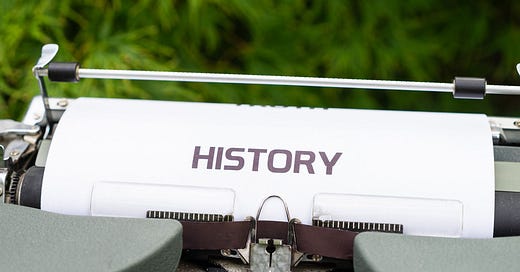🌲 On notes bound by time and location
Be specific. Be aware of your biases. Break down information into its component parts for easier remixing. Above all; keep track of your sources.
Awhile back, I joined Bianca Pereira on Twitter Spaces to discuss knowledge management for research, specifically dealing with taking notes about history. Since Twitter Spaces recordings only last about a month, I wanted a permanent record of my thoughts on the topic; here it is.
⚠️ There was discussion of child sacrifice in the ancient world; it's not graphic, but you've been warned.
My main advice is to focus on specific facts & insights over broad topics; although obviously you need to know where those facts fit into a broad context, the more narrowly focused your pieces, the more easily it is to spin them out into lists and timelines of elements that really matter — not a "timeline of all of human history" (oh god) but rather things like overviews of domestication, or events in a particular war; instead of just a line graph, I like think of timelines as branching maps of content.
Be aware of where labels and ideas come from
The concepts we research didn't spring fully-formed from the head of Zeus; they came from somewhere. Historically, we've chunked groups into sections when studying the past — but in fact the actual people living in those times would not have recognized themselves in that way. I talked about this more in my article about ancient identities, but basically, the Hellenic identity shifted over time, insofar as it was ever clearly defined — a fact debated by the ancient Greeks themselves!
Keep reading with a 7-day free trial
Subscribe to Manuscriptions to keep reading this post and get 7 days of free access to the full post archives.



